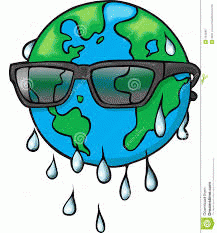by Walter Brasch
Persons in the Mid-Atlantic and New England states will experience increased rainfall and floods if data analysis by a Penn State meteorologist and long-term projections by a fisheries biologist, with a specialty in surface water pollution, are accurate.
Paul Knight, senior lecturer in meteorology at Penn State, compiled rainfall data for Pennsylvania from 1895--when recordings were first made--to this year. He says there has been an increase of 10 percent of rainfall during the past century. Until the 1970s, the average rainfall throughout the state was about 42 inches. Beginning in the 1970s, the average began creeping up. "By the 1990s, the increase was noticeable," he says. The three wettest years on record since 1895 were 2003, 2004, and 2011. The statewide average was 61.5 inches in 2011, the year of Tropical Storm Lee, which caused 18 deaths and about $1.6 billion in damage in Alabama, Louisiana, Mississippi, and Texas, and devastating flooding in New York and Pennsylvania, especially along the Susquehanna River basin.
Dr. Harvey Katz, of Montoursville, Pa., extended Knight's data analysis for five decades. Dr. Katz predicts an average annual rainfall of about 55 inches, about 13 inches more than the period of 1895 to 1975. The increased rainfall isn't limited to Pennsylvania, but extends throughout the Mid-Atlantic and New England states.
Both Knight and Dr. Katz say floods will be more frequent. The industrialization and urbanization of America has led to more trees being cut down; the consequences are greater erosion and more open areas to allow rainwater to flow into streams and rivers. Waterway hazards, because of flooding and increased river flow, will cause additional problems. Heavy rains will cause increased pollution, washing off fertilizer on farmlands into the surface water supply, extending into the Chesapeake Bay. Sprays on plants and agricultural crops to reduce attacks by numerous insects, which would normally stay localized, will now be washed into streams and rivers, says Knight.
Pollution will also disrupt the aquatic ecosystem, likely leading to a decrease in the fishing industry because of increased disease and death among fish and other marine mammals, says Dr. Katz.
Another consequence of increased rainfall is a wider spread of pollution from fracking operations, especially in the Marcellus Shale.
Most of the 1,000 chemicals that can be used in drilling operations, in the concentrations used, are toxic carcinogens; because of various geological factors, each company using horizontal fracturing can use a mixture of dozens of those chemicals at any one well site to drill as much as two miles deep into the earth.
Last year, drilling companies created more than 300 billion gallons of flowback from fracking operations in the United States. (Each well requires an average of 3--5 million gallons of water, up to 100,000 gallons of chemicals, and as much as 10 tons of silica sand. Flowback is what is brought up after the initial destruction of the shale.) Most of that flowback, which once was placed in open air pits lined with plastic that can tear and leak, are now primarily placed into 22,000 gallon steel trailers, which can leak. In Pennsylvania, drillers are still allowed to mix up to 10 percent of the volume of large freshwater pits with flowback water.
In March 2013, Carizo Oil and Gas was responsible for an accidental spill of 227,000 gallons of wastewater, leading to the evacuation of four homes in Wyoming County, Pa. Two months later, a malfunction at a well, also in Wyoming County, sent 9,000 gallons of flowback onto the farm and into the basement of a nearby resident.
Rain, snow, and wind in the case of a spill can move that toxic soup into groundwater, streams, and rivers. In addition to any of dozens of toxic salts, metals, and dissolvable organic chemicals, flowback contains radioactive elements brought up from deep in the earth; among them are Uranium-238, Thorium-232, and radium, which decays into radon, one of the most radioactive and toxic gases. Radon is the second highest cause of lung cancer, after cigarettes, according to the Environmental Protection Agency.
A U.S. Geological Survey analysis of well samples collected in Pennsylvania and New York between 2009 and 2011 revealed that 37 of the 52 samples had Radium-226 and Radium-228 levels that were 242 times higher than the standard for drinking water. One sample, from Tioga County, Pa., was 3,609 times the federal standard for safe drinking water, and 300 times the federal industrial standard.
Radium-226, 200 times higher than acceptable background levels, was detected in Blacklick Creek, a 30-mile long tributary of the Conemaugh River near Johnstown, Pa. The radium, which had been embedded deep in the earth but was brought up in flowback waters, was part of a discharge from the Josephine Brine Treatment Facility, according to research published in the peer-reviewed journal Environmental Science & Technology.
Increased rainfall also increases the probability of pollution from spills from the nation's decaying pipeline systems. About half of all oil and gas pipelines are at least a half-century old. There were more than 6,000 spills from pipelines last year. Among those spills were almost 300,000 gallons of heavy Canadian crude oil from a pipe in Arkansas, and 100,000 gallons of oil and other chemicals in Colorado.
(Note: You can view every article as one long page if you sign up as an Advocate Member, or higher).





